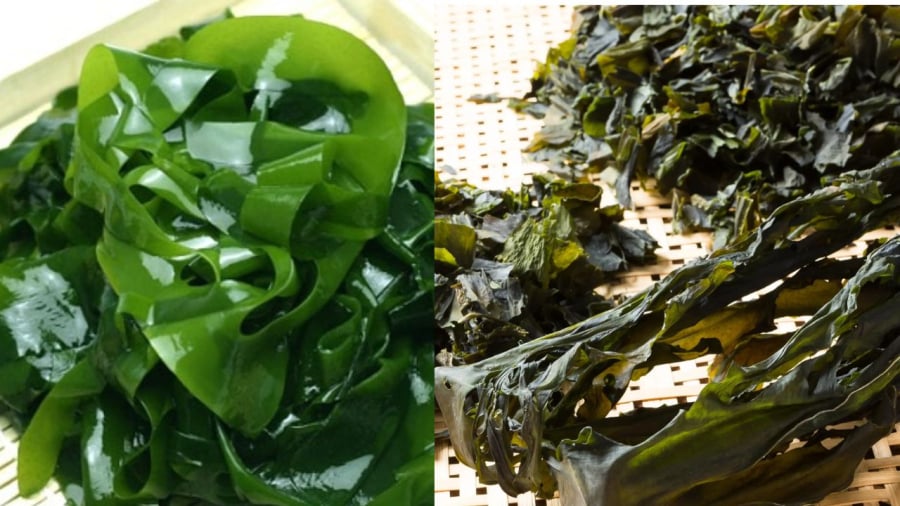Seaweed is a natural food with high nutritional content. Seaweed is considered a nourishing food. The nutritional content of each type of seaweed varies depending on the type and location of development. But all types contain vitamins and minerals including: vitamin A, B2, B5, C, E, calcium, copper, iodine, iron, magnesium, manganese, phosphorus, selenium, zinc…
Seaweed is particularly rich in vitamin K, containing protein and fiber, antioxidants (compounds that protect against cell damage) in the form of vitamins A, C, and E as well as in the pigments that give seaweed its color. Therefore, seaweed is popular because they have many health benefits, especially as an excellent source of iodine.

Seaweed is very nutritious so be careful when eating
Iodine is important for the thyroid gland, supporting metabolism. Our bodies cannot synthesize iodine so it must be supplemented through food and seaweed is a good source of iodine.
The potential benefits of seaweed include:
Improving thyroid function
Thyroid hormones help regulate many body functions, from menstrual cycles to body temperature. Those who lack iodine, the thyroid gland cannot produce enough of these hormones, which can lead to goiter. Iodine is especially important for pregnant women because it is related to the brain development of the fetus.
Good for intestinal health
Seaweed contains carbohydrates that act as prebiotics, indigestible fibers, so supplementing seaweed helps nurture beneficial bacteria in your digestive tract. Seaweed promotes the growth of good bacteria and increases short-chain fatty acids to help maintain a healthy intestinal mucosa.

Seaweed has many health benefits but eating too much can cause nutrient excess
Supports cardiovascular health
Initial studies have found a connection between eating seaweed and a lower risk of heart disease. Some findings suggest that polyphenols, compounds found in seaweed, may help lower blood pressure, LDL cholesterol – “bad” cholesterol, and total cholesterol levels.
Stabilizes blood sugar levels
Seaweed is rich in natural polyphenols that help control blood sugar levels. In particular, the component Fucoxanthin, an antioxidant found in some types of seaweed, also plays a role in blood glucose control.
Be cautious about the dangers of eating seaweed due to excessive nutrient content
Eating seaweed is safe for most people. But there are a few things to consider when using this seaweed vegetable:
Too much iodine: Iodine is extremely necessary but excess iodine is also dangerous and can cause hyperthyroidism. The body only needs a small amount of iodine – about 150 micrograms per day. In particular, children, infants, and people with thyroid disorders should avoid consuming too much iodine.
Seaweed may interact with certain medications: Seaweed is very high in potassium. Potassium is good for health but can burden the kidneys, so it is not good for people with kidney disease when eaten in excess. Seaweed also contains vitamin K which can interfere with blood-thinning medications like warfarin.


































